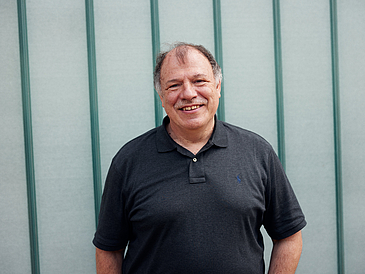" I am very pleased for Michael Beetz, his team, and the University of Bremen about this prestigious award,” says University President, Professor Jutta Günther, on the decision of the European Research Council. “It is a further testament to the outstanding scientific importance of the artificial intelligence research at our university. I would like to congratulate Michael Beetz on behalf of the entire University Executive Board,” says President Jutta Günther.
Artificial Intelligence Is Not Yet Truly Intelligent
In recent years, AI applications have achieved a number of spectacular successes – from victories against the world’s best go players to passing a law exam as well as creating amazingly good text and images. There is a problem with this, though: In all these activities, AI still does not understand what it is doing and cannot explain its approach. Another problem is that AI quickly reaches its limits when it comes to concrete action. For example, when an AI-based robot has learned to pour juice out of a bottle and into a glass, it – unlike humans – is unable to transfer the pouring capability to other containers and substances spontaneously. It has to learn almost completely from scratch how to pour pancake batter into a pan or how to extinguish a small fire with a bucket of water.
"Answering the question of what enables our brain to perform very many different tasks successfully on the basis of vague information and usually on the first attempt is one of the biggest unanswered scientific challenges," emphasizes Professor Michael Beetz. "In this project, we want to explore whether the internal imagination of actions and their observation with the "mind's eye" is an important key to a better understanding of this ability.
Novel technologies used in modern computer games in combination with methods from artificial intelligence and cognitive research now give us the opportunity to investigate this hypothesis in a new and promising way."
Model for Predictive Action
People can often successfully transfer acquired skills to new situations on their first attempt because they have a range of gifts that make it possible to plan and test an action in their head. They can usually do this extremely quickly and subconsciously. We understand why we have not spilled the juice and we have intuitions about the physical properties of the bucket or pancake batter. We can also imagine internally what happens if we were to touch or let go of a bucket in certain places. To enable AI-based robots to do this kind of planning, Professor Beetz is seeking to develop a model (knowledge representation and reasoning framework) that allows them to analyze their actions and context of those actions. This model is also intended to help them find the information they need to complete a task themselves, for example, the best way to pick up a bucket of water.
Personal Profile
Professor Michael Beetz heads the Institute for Artificial Intelligence at the University of Bremen, where he has also coordinated the Collaborative Research Center (CRC) EASE (1320 Everyday Activity Science and Engineering) since 2017. This CRC works on equipping robots with human capabilities for managing everyday tasks. In the context of demographic change, for example, this is urgently needed to enable the physically disabled to live independently in their own homes for longer in the future. Michael Beetz studied computer science at the University of Kaiserslautern before obtaining his doctorate at Yale University in the United States. In 2019, he received an honorary doctorate from the University of Örebro in Sweden for his long-standing cooperation and outstanding international research. Michael Beetz is also strongly committed to open research, that is, open access to scientific findings in order to promote cooperation.
The ERC Advanced Grant
The European Research Council (ERC) awards its Advanced Grant to top scientists who have already achieved recognition. For a period of five years, groundbreaking frontier research will be funded with a maximum of 2.5 million euros. The funding from an ERC Advanced Grant is intended to enable research work that comes with increased uncertainty but also particularly great opportunities for society.
Further Information:
www.ai.uni-bremen.de
www.ease-crc.org
www.uni-bremen.de
Contact:
Professor Michael Beetz
Institute for Artificial Intelligence/Collaborative Research Center EASE
University of Bremen
Tel.: +49 421 218-64005
Email: beetzcs.uni-bremen.de

